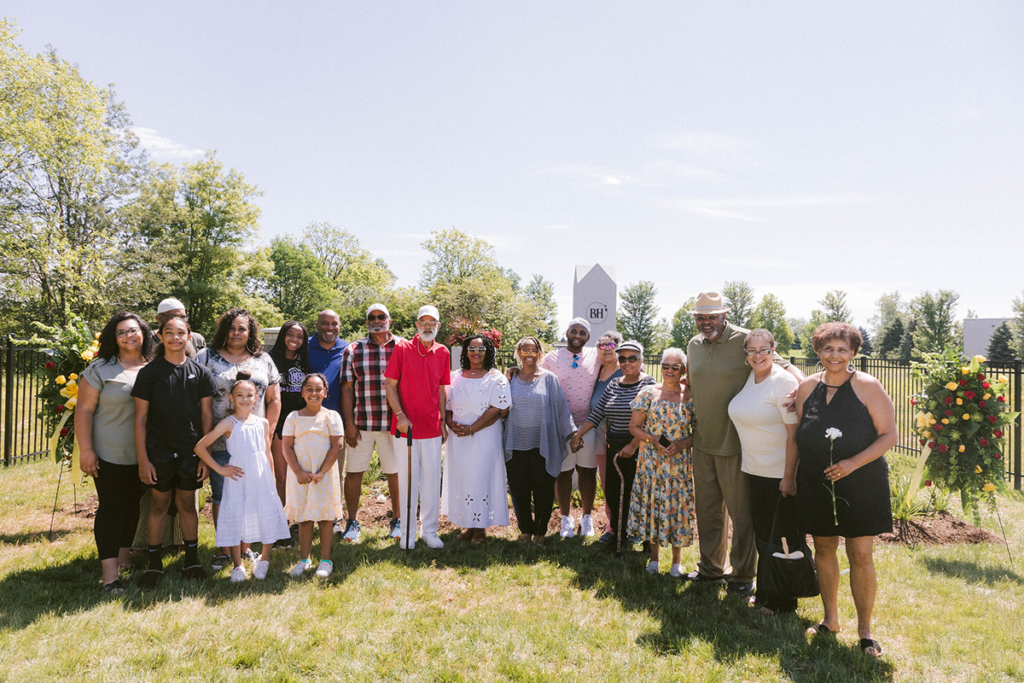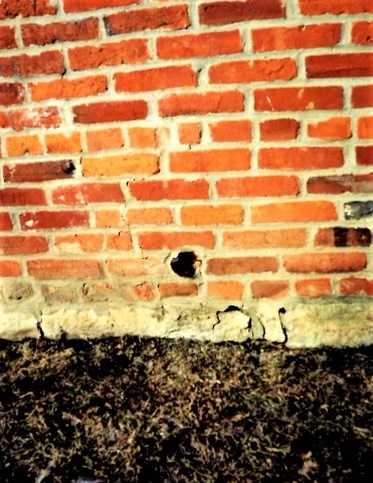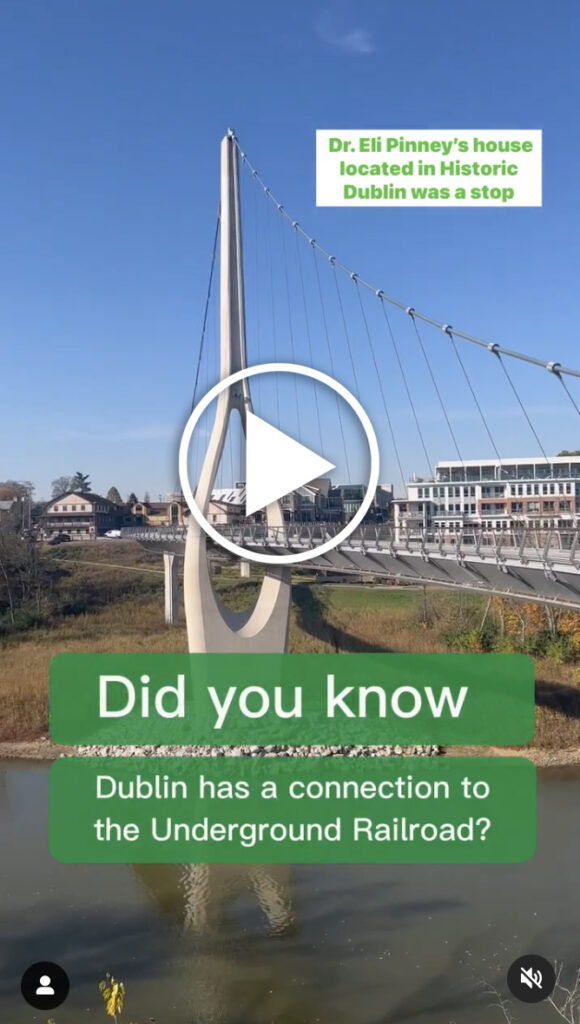How to Honor Black History Month in Dublin
February is Black History Month, which is a time to celebrate the achievements of Black Americans and reflect on their impact on our collective history and culture. The concept of Black History Month was originated by historian Carter G. Woodson and other African American leaders in the early 1900s, later becoming a federally recognized month beginning in 1976.


Visit the Brown-Harris Cemetery
After the Brown-Harris Cemetery was rediscovered in 2020, the City of Dublin partnered with the Brown and Harris families and engineering firm EMH&T to preserve the site and create a monument that properly illustrates the space’s significance and importance to Dublin’s history.
Located at 6540 Shier Rings Road, this historically Black cemetery includes at least 22 confirmed graves. The cemetery was lost in the early 1920s, with the finding of a grave marker from 1854 helpful in rediscovering the land’s true purpose.
The Brown-Harris Cemetery was dedicated June 28, 2024, after years of strategic restoration and coinciding with the time of year focused on commemorations and celebrations of Juneteenth and African American history. Learn more.
Dublin’s Ties to the Underground Railroad
Did you know that Dublin and nearby Shawnee Hills have connections to the Underground Railroad?
Dr. Eli Pinney’s House
Dr. Eli Morrison Pinney’s house, located in Historic Dublin, was a stop on the Underground Railroad in the mid-1800s for enslaved people fleeing from the South to Canada. The Underground Railroad stop in Shawnee Hills would have been the next likely station after Dr. Pinney’s house on South Riverview Street for those fleeing north along the Scioto River. Dr. Pinney lived from 1817 to 1907.
Listening Tube
Dr. Pinney installed a listening tube in his home, which was a brass device that connected the outside of the house to an inside room so conductors could communicate with others.
Watch House
The cut-out hand shapes in The Dublin Watch House also serve as a nod to the listening tube in Dr. Pinney’s house.
Eli Pinney Elementary
Dr. Eli Pinney’s contributions to the Underground Railroad live on with the title of Eli Pinney Elementary, named after his relation, Eli Pinney (1908-1990).
Lucy Depp Park & The Depp Settlement — Abraham Depp Freedom Station
Abraham Depp was freed under the Emancipation Proclamation and established a home locally. He, alongside Lucy Depp, helped others on their journey north by giving them a place to stay at an Underground Railroad Station in the nearby town of Shawnee Hills. Learn more about the Depps.
Lucy Depp Park & The Depp Settlement — Bell
The bell at Lucy Depp Park was an “all-clear signal” given at night to indicate it was safe to travel.
Abraham Depp Elementary
Dublin City Schools named Abraham Depp Elementary to honor the legacy of Depp and those he helped during his lifetime; the school opened in the fall of 2020.

Dr. Pinney installed a listening tube in his home, which was a brass device that connected the outside of the house to an inside room so conductors could communicate with others.

The Dublin Watch House serves as a nod to Dublin’s history with the Underground Railroad. Learn more.
Ways to Participate in Black History Month
Thanks to Dublin resident and Community Inclusion Advisory Committee member Katawi Cato for sharing this content!
Ways to Celebrate This Month
- Support Dublin Black-owned businesses
- Learn about Black leaders and their history
- Listen to music or a podcast by Black creators
- Watch movies and documentaries about the Black experience
- Read books by Black authors at the Dublin Library
- Make a meal inspired by Black culture
- Plan a trip to the Smithsonian National Museum of African American History & Culture
- Review art and music created by Black artists
- Share online how you are celebrating using #DublinBHM
Support Dublin Black-Owned Businesses
Read a Book
- The Color of Water, James McBride
- I Know Why the Caged Bird Sings, Maya Angelou
- Just as I Am, Cicely Tyson
- So You Want to Talk About Race, Ijeoma Oluo
- Caul Baby, Morgan Jerkins
- The Vanishing Half, Brit Bennett
- The Promise of Change, Boyce & Levy
- Mirandy and Brother Wind, Patricia McKissack
- Standing on Her Shoulders, Monica Clark-Robinson
- Kindred, Octavia E. Butler
- Beloved, Toni Morrison
- I Know Why the Caged Bird Sings, by Maya Angelou
- Finding Me, Viola Davis
- Unbound, Tawana Burke
- Becoming, Michelle Obama
- The Color Purple, Alice Walker
- The Hate U Give, Angie Thomas
- The Twelve Tribes of Hattie, Ayana Mathis
- If Beale Street Could Talk, James Baldwin
- Their Eyes Were Watching God, Zora Neale Hurston
Listen to a Podcast or Music
- Black Girl Songbook
- Earn Your Leisure
- Brown & Black
- Code Switch
- Spotify: Black History Is Now
- Apple Music: Black History Month
- Stevie Wonder: Songs In the Key of Life
- Nina Simone: Baltimore
- Marvin Gaye: What’s Going On
- John Coltrane: A Love Supreme
- Anita Baker: Rapture
- Miles Davis: Kind of Blue
- Mary J Blige: My Life
- Donny Hathaway: Live
- Janet Jackson: Control
- Prince: Purple Rain
- Whitney Houston: Whitney
- Michael Jackson: Off the Wall
- Beyonce: Lemonade
- Lauryn Hill: The Miseducation of Lauryn Hill
Watch a Movie or Documentary
- The 1619 Project (on Hulu)
- Self Made (on Netflix)
- Hidden Figures (on Disney+, Hulu, Prime)
- 13th (Netflix)
- Colin In Black & White (Netflix)
- Black Is King (Disney+)
- Passing (Netflix)
- Malcolm X (Netflix)
- I Am Not Your Negro (Prime)
- Judas and the Black Messiah (HBO Max)
- In Our Mothers’ Gardens (Netflix)
- The Black Godfather (Netflix)
- Quincy (Netflix)
- John Lewis: Good Trouble (HBO Max)
- One Night In Miami (Amazon Prime)
- Soul (Disney+)
- The Wiz (Amazon Prime)
Make a Meal
- Seasoned Greens/Southern-Style Collard Greens
- Gumbo inspired by Lena Richard: Lena Richard was the first Black woman in the Jim Crow South to become one of America’s first celebrity chefs and the first to host her own TV cooking shows. She was known as the best Creole chef in New Orleans and whites and Blacks would defy segregation laws to enjoy her famous gumbo under one roof.
- Fried Okra
- Black-Eyed Peas
- BBQ Ribs
- Potato Salad
- Southern Fried Chicken
- Easy Southern Peach Cobbler
Public Records Request Overview
In order to support faster response and better tracking of requests, the City of Dublin uses JustFOIA to collect, respond to and manage public information requests.
Why JustFOIA?
JustFOIA is a Freedom of Information Act (FOIA) online application that helps streamline the open records request process for the community and improve efficiencies in getting requested information quickly and accurately.
The application lets community members submit requests for all city records, including police reports. Commonly requested information includes accident reports, copies of resolutions and body-camera video.
Mission
We are and always have been a proud local democracy. In our service, we strive to provide the best quality of life and environment in which our residents and businesses can thrive. We seek to ally our proud traditions with the best innovations of the future.
Vision
Dublin, Ohio, is the most sustainable, connected and resilient global city of choice.
Core Values
Integrity, Respect, Communication, Teamwork, Accountability, Positive Attitude & Dedication to Service.
The City of Dublin operates under a set of seven key core values: integrity, respect, communication, teamwork, accountability, positive attitude and dedication to service. Staff members use these seven values as the basis for daily decision-making, including the decisions that go into the budget process.
- Integrity. We are open and honest. We honor our commitments to the community and each other. Our actions are consistent with what we say.
- Respect. We treat our coworkers and members of the community with courtesy and dignity. We embrace diversity and acknowledge the needs, responsibilities and inherent worth of each individual.
- Communication. We maintain an environment in which employees feel free to share ideas and information. We promote open interaction throughout the organization to ensure knowledge and understanding among all employees and our community.
- Teamwork. We create a climate in which all employees work together and support the individual talents and contributions of team members. We celebrate successes and see mistakes as opportunities for growth; we will never willingly let a member of our team fail.
- Accountability. We are responsible to our community and each other for our personal and organizational decisions, actions and performance results. We are committed stewards of our City’s assets and resources.
- Positive Attitude. We focus our efforts on constructive behavior, attitudes and solutions. We promote an environment that people love going to every day – a place where each individual can find a sense of belonging, inspiration, enjoyment and meaning.
- Dedication to Service. We pursue innovation and continuous improvement in all we do. We are committed to efficient, effective and responsive service delivery that makes a difference in the lives of those we serve.
Leadership Philosophy
We are members of an organization that succeeds because of teamwork, dedication, diversity and the innovative spirit of all of our members. Together, we build a culture of trust, service, mutual respect, inclusion and open communication. We hold ourselves mutually accountable to promote and sustain continuous learning and to develop the learning potential that exists in every member of our team.
City Code
The complete Dublin City Code is available online at American Legal City Ordinance website. Information staff at the Dublin branch of the Columbus Metropolitan Library are available to help navigate this website.
Revised Charter of Dublin, Ohio
This Revised Charter, as adopted on March 19, 1996, became effective on July 4, 1996.
Zoning Code
The Zoning Code for Dublin is Chapter 153 of the Dublin Code of Ordinances. The Zoning Code sets land development requirements and establishes different uses within individual districts. Zoning regulations address the physical development of a site, such as building height, lot requirements, setbacks from lot lines, minimum numbers of parking spaces, sign types and sizes, and other related regulations.
City Hall
5555 Perimeter Dr.
Dublin, Ohio 43017
Phone:
614.410.4400
Report an Issue
Request a service or report an Issue.
Tell Dublin
Send us your public input.
Dublin, Ohio, USA
5555 Perimeter Drive
Dublin, Ohio, 43017
Mon – Fri: 8 a.m. – 5 p.m.

